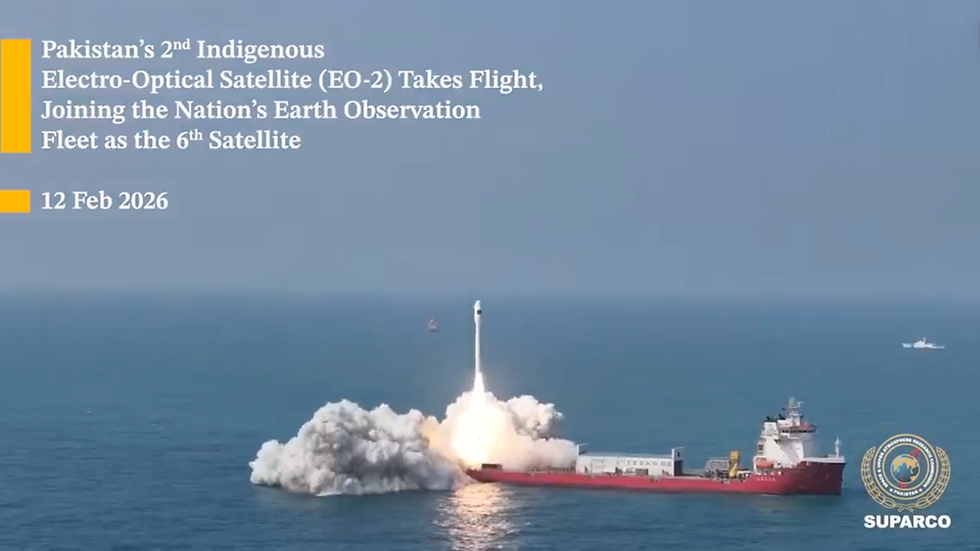Japan–Philippines Space Alliance Expands: New B2B, Manufacturing, and Data Partnerships on the Horizon
- Sep 1, 2025
- 2 min read

In a significant stride toward regional space collaboration, Philippine President Ferdinand R. Marcos Jr. reaffirmed his administration’s commitment to leveraging space technology for national development during the Philippine delegation’s visit to Expo 2025 Osaka.
“We’re working with the Japan Aerospace Exploration Agency (JAXA), alongside our very own Philippine Space Agency (PhilSA), to harness space capabilities that protect and uplift the lives of Filipinos,” President Marcos stated, following a high-level dialogue with JAXA President Dr. Hiroshi Yamakawa and PhilSA Deputy Director General Dr. Gay Jane Perez.
The Philippines is positioning satellite technology as a critical enabler of disaster response, agricultural efficiency, and public safety. “With better satellites, we can track typhoons and respond faster, help our farmers plan more intelligently, and keep our communities safer,” President Marcos added.
Strategic Ties with JAXA Strengthened
JAXA’s partnership with the Philippines spans nearly two decades, beginning in 2006 with early cooperation via the Department of Science and Technology (DOST). The relationship took a formal turn in 2021 when JAXA and PhilSA signed a comprehensive memorandum of cooperation. Today, the partnership encompasses joint work in satellite development, research and development (R&D), and national capacity building.
“Japan values its enduring collaboration with the Philippines,” said Dr. Yamakawa. “We support PhilSA’s mission to integrate satellite data into national strategies for inclusive and resilient development.”
Joint Programs Advancing Regional Impact
The Philippines plays an active role in the Sentinel Asia initiative, contributing satellite imagery from Diwata-2 and NovaSAR-1 to support disaster risk reduction across the Asia-Pacific region. PhilSA continues to provide imagery across all disaster phases — before, during, and after — enhancing the situational awareness of national and regional emergency response teams.
In parallel, space education and human capital development remain a cornerstone of the partnership. Under JAXA’s Kibo Asian Beneficial Collaboration (Kibo-ABC), Filipino researchers and students gain direct access to the International Space Station (ISS). This includes initiatives such as Asian Try Zero-G, Asian Herb in Space (AHIS), and the Kibo Robot Programming Challenge (Kibo_RPC), where Filipino-led experiments have been regularly conducted by JAXA astronauts since 2022.
Business-to-Business Focus and Industrial Growth
Looking ahead, both countries are setting the stage for increased private sector engagement. New regulations and investment incentives aim to unlock business-to-business partnerships that will diversify the regional satellite supply chain and fuel the growth of the Philippine space economy.
“PhilSA is actively inviting Japanese space companies to collaborate with Philippine firms — not only in satellite data applications but also in satellite manufacturing and emerging technologies,” said Dr. Gay Jane Perez. “These partnerships are key to developing a robust domestic space industry.”
Philippines to Host Regional Space Milestones
As a sign of its growing leadership in the space domain, the Philippines will host two landmark events in November 2025:
Asia-Pacific Regional Space Agency Forum (APRSAF-31) in Cebu — the region’s largest space forum, co-organized by PhilSA and JAXA. The event will spotlight joint initiatives and elevate PhilSA’s profile as a regional enabler of space diplomacy and innovation.
Japan–Philippines Space Economy Co-Creation Event in Manila — a strategic B2B gathering that will convene startups, agencies, investors, and technology leaders from both countries to catalyze future cooperation in satellite applications and industrial growth.




Comments